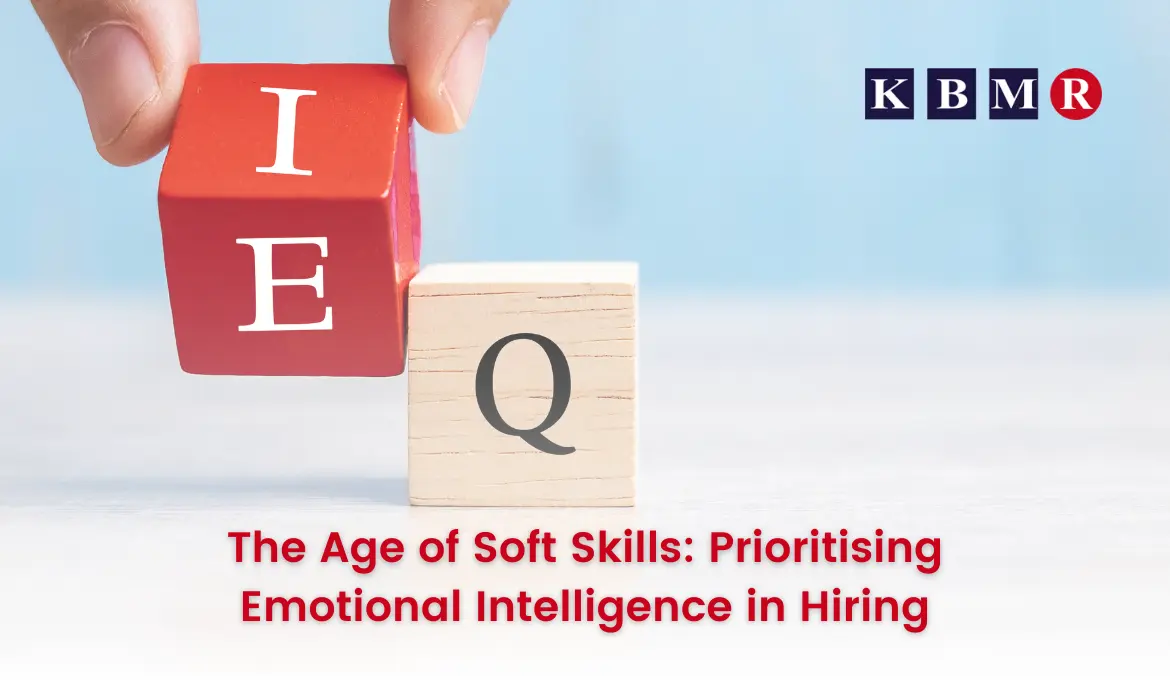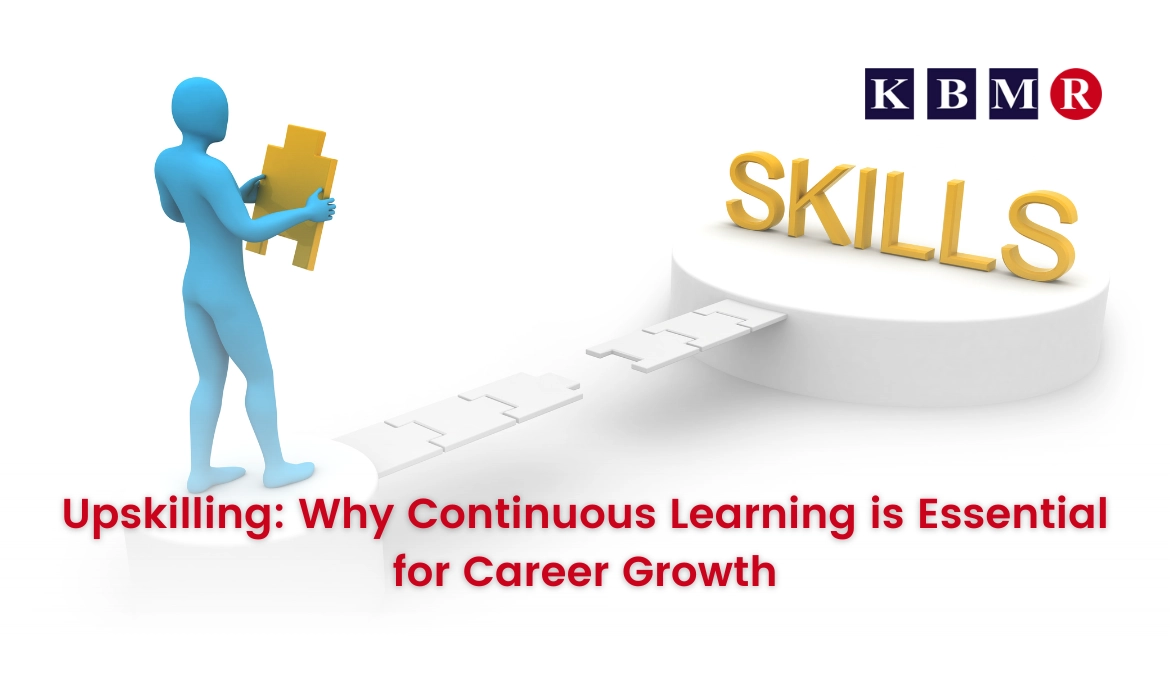In the modern workplace dynamic landscape, the significance of soft skills, particularly emotional intelligence, is taking centre stage. This blog delves into the evolving hiring trends that emphasise the critical role of emotional intelligence in shaping prosperous and harmonious professional environments.
The Rise of Soft Skills
As workplaces become more collaborative and diverse, the demand for soft skills has experienced a remarkable upswing. While technical prowess remains crucial, employers increasingly recognise the pivotal role of soft skills, with emotional intelligence emerging as a critical competency in high demand.
In the ever-evolving professional world, the rise of soft skills reflects a strategic shift in recognising the multifaceted qualities that contribute to a thriving workplace. It's not merely about what employees know but how they navigate the intricate web of human interactions.
Defining Emotional Intelligence
Emotional intelligence (EI) focuses on understanding, managing, and navigating one's emotions and those of others. It involves empathy, self-awareness, effective communication, and interpersonal skills. Recognising the nuances of emotional intelligence is essential for employers seeking to build cohesive and resilient teams.
At its core, emotional intelligence is about more than just being aware of emotions; it's about using that awareness to foster positive connections and navigate the complexities of human relationships within a professional context.
Impact on Team Dynamics
Teams with members possessing high emotional intelligence exhibit enhanced communication, collaboration, and conflict resolution. Understanding and responding to one's and others' emotions fosters a positive and supportive team culture, resulting in increased productivity and job satisfaction.
In team dynamics, emotional intelligence acts as a catalyst for synergy. Teams that communicate effectively, understand each other's perspectives, and navigate conflicts with empathy are better poised for success in today's collaborative work environments.
Adaptability and Resilience
In a rapidly changing work environment, resilience and adaptability are invaluable. People with high emotional intelligence are better equipped to explore uncertainty, handle stress, and adapt to evolving challenges. This makes them assets in environments where flexibility and quick problem-solving are paramount.
In constant change, emotionally intelligent individuals exhibit a remarkable capacity to adapt and bounce back from setbacks. Their resilience contributes to a workplace culture that thrives amid uncertainty.
Customer-Centric Approach
For roles involving customer interaction, emotional intelligence is a game-changer. Professionals who can empathise with customers, understand their needs, and respond with tact and understanding contribute significantly to customer satisfaction and brand loyalty.
In customer-centric roles, emotional intelligence is not just a skill; it's the key to building lasting relationships. Understanding and responding to the emotions of clients creates a positive customer experience.
Interviewing for Emotional Intelligence
As the importance of emotional intelligence grows, employers are refining their hiring processes to assess these skills effectively. Behavioural interview questions, situational judgment tests, and scenario-based assessments are some methods to gauge a candidate's emotional intelligence during recruitment.
During interviews, a focus on emotional intelligence involves delving beyond technical competencies. Asking candidates to share experiences where they demonstrated empathy or managed interpersonal conflicts provides insights into their emotional intelligence.
Training and Development Initiatives
Recognising the impact of emotional intelligence on overall team effectiveness, organisations are investing in training and development programmes. These initiatives aim to nurture and enhance the emotional intelligence of existing staff, creating a workforce that excels in technical competencies and interpersonal dynamics.
Training programmes on emotional intelligence empower employees to develop and refine their interpersonal skills. Organisations cultivate a workforce that embodies emotional intelligence across all levels by investing in such initiatives.
Measuring Success Beyond Technical Skills
In evaluating employee performance, the emphasis is shifting beyond technical accomplishments. Performance metrics now include aspects related to emotional intelligence, such as team collaboration, conflict resolution, and effective communication. This more holistic approach provides a comprehensive view of an employee's contributions.
Performance evaluations encompassing emotional intelligence metrics provide a more nuanced understanding of an individual's impact. Recognising and rewarding behaviours that contribute to a positive and collaborative work environment become integral to the assessment process.
Challenges in Assessing Emotional Intelligence
While acknowledging the importance of emotional intelligence, assessing it can be challenging. Unlike technical skills, which may be quantifiable, evaluating emotional intelligence requires a nuanced understanding of human behaviour. Developing reliable and objective assessment methods remains a hurdle for many organisations.
Assessing emotional intelligence presents a unique set of challenges. Organisations grapple with finding methods beyond self-reporting and provide objective insights into a candidate's or employee's ability to navigate emotional nuances.
Cultivating a Culture of Emotional Intelligence
Beyond individual competencies, fostering a culture of emotional intelligence is crucial. Organisations increasingly prioritise values that align with empathy, open communication, and understanding. This cultural shift contributes to a workplace where emotional intelligence is a skill and a shared ethos.
Cultivating a culture of emotional intelligence involves aligning organisational values with the principles of empathy and understanding. When employees perceive that emotional intelligence is not just a requirement but a celebrated aspect of the workplace, it permeates the entire organisational fabric.
The Bottom Line
In the age of soft skills, emotional intelligence emerges as a linchpin for success in the professional realm. Its impact on team dynamics, adaptability, customer-centric approaches, and workplace culture underscores its significance.
As organisations recalibrate their hiring strategies and invest in the development of emotional intelligence, they pave the way for a future where individuals thrive not only in their technical competencies but also in their ability to explore the complex landscape of human interactions.
In prioritising emotional intelligence, businesses are not just hiring talent; they are shaping resilient, empathetic, and high-performing teams that can gracefully navigate the challenges of the future.





